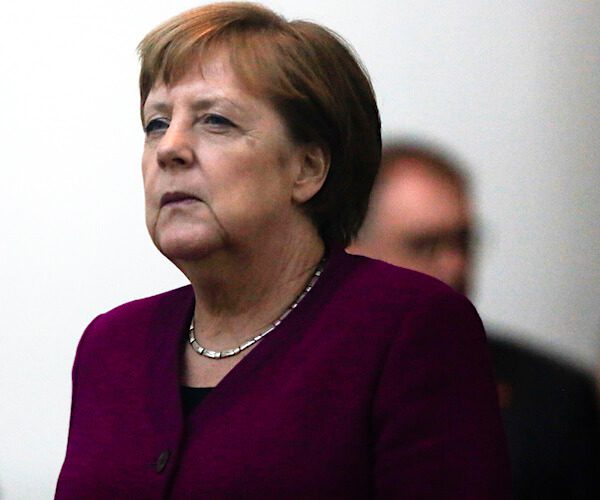The MarketWatch News Department was not involved in the creation of this content.
Jan 17, 2021 (Market Insight Reports) --
This detailed market study covers Industrial Furnaces Market growth potentials which can assist the stake holders to understand key trends and prospects in Industrial Furnaces market identifying the growth opportunities and competitive scenarios. The report also focuses on data from different primary and secondary sources, and is analyzed using various tools. It helps to gain insights into the market’s growth potential, which can help investors identify scope and opportunities. The analysis also provides details of each segment in the global Industrial Furnaces market
Sample Copy of This Report: https://www.quincemarketinsights.com/request-sample-40858?utm_source=MW/komal
Abbott Furnace, Epcon Industrial Systems, LP, International Thermal Systems, Industrial Furnace Company, L&L Special Furnace Co., Inc., Thermcraft, Inc., and Honeywell…
According to the report, the Industrial Furnaces market report points out national and global business prospects and competitive conditions for Industrial Furnaces. Market size estimation and forecasts were given based on a detailed research methodology tailored to the conditions of the demand for Industrial Furnaces. The Industrial Furnaces market has been segmented By Arrangement (Box Type, Clamshell Type, and Car Bottom Type), By Operation (Electrical and Gas), By Structure (Batch and Continuous), By Application (Atmosphere and Vacuum), By End User (Metallurgy, Steel &Iron, Automotive, and Food Processing). Historical background for the demand of Industrial Furnaces has been studied according to organic and inorganic innovations in order to provide accurate estimates of the market size. Primary factors influencing the growth of the demand Industrial Furnaces have also been established with potential gravity.
Regional segmentation and analysis to understand growth patterns:
The market has been segmented in major regions to understand the global development and demand patterns of this market.
By region, the Industrial Furnaces market has been segmented in North America, Europe, Asia Pacific, Middle East, and Rest of the World. The North America and Western Europe regions are estimated to register a stable demand during the forecast period with market recovery from recent slowdowns. North America region includes the US, Canada, and Mexico. The US is estimated to dominate this market with a sizeable share followed by Canada, and Mexico. The industrial sector is a major contributor to the US and Canada economies overall. Hence, the supply of advanced materials in production activities is critical to the overall growth of industries in this region.
Western Europe region is dominated by Germany, the UK, France, Italy, and Spain. These countries also have a strong influence on the industrial sector resulting in sizeable demand for Industrial Furnaces market. Asia Pacific is estimated to register the highest CAGR by region during the forecast period. The presence of some of the high growth economies such as China and India is expected to propel the demand in this region. Besides, this region has witnessed strategic investments by major companies to increase their market presence. The Middle East and Eastern Europe are estimated to be other key regions for the Industrial Furnaces market with a strong market potential during the forecast period. Rest of the World consisting of South America and Africa are estimated to be emerging markets during the forecast period.
This report provides:
1) An overview of the global market for Industrial Furnaces market and related technologies.
2) Analysis of global market trends, yearly estimates and annual growth rate projections for compounds (CAGRs).
3) Identification of new market opportunities and targeted consumer marketing strategies for global Industrial Furnaces market.
4) Analysis of R&D and demand for new technologies and new applications
5) Extensive company profiles of key players in industry.
The researchers have studied the market in depth and have developed important segments such as product type, application and region. Each and every segment and its sub-segments are analyzed based on their market share, growth prospects and CAGR. Each market segment offers in-depth, both qualitative and quantitative information on market outlook.
Objectives of this report:
? To estimate market size for Industrial Furnaces market on regional and global basis.
? To identify major segments in Industrial Furnaces market and evaluate their market shares and demand.
? To provide a competitive scenario for the Industrial Furnaces market with major developments observed by key companies in the historic years.
? To evaluate key factors governing the dynamics of Industrial Furnaces market with their potential gravity during the forecast period.
ABOUT US:
QMI has the most comprehensive collection of market research products and services available on the web. We deliver reports from virtually all major publications and refresh our list regularly to provide you with immediate online access to the world’s most extensive and up-to-date archive of professional insights into global markets, companies, goods, and patterns.
Contact:
Quince Market Insights
Ajay D. (Knowledge Partner)
Office No- A109
Pune, Maharashtra 411028
Phone: APAC +91 706 672 4848 / US +1 208 405 2835 / UK +44 1444 39 0986
Email: [email protected]
Web: https://www.quincemarketinsights.com
<div data-layout=" inline" data-layout-mobile="" class=" media-object type-InsetMediaIllustration full-width article__inset article__inset--type-InsetMediaIllustration article__inset--inline ">
<figure class=" media-object-image enlarge-image renoImageFormat-8P img-inline article__inset__image " itemscope="" itemtype="https://schema.org/ImageObject">
<div data-mobile-ratio="0.1156%" data-layout-ratio="0.1156%" data-subtype="" class="image-container responsive-media article__inset__image__image">
</div>
<figcaption class="wsj-article-caption article__inset__image__caption" itemprop="caption">
</figcaption>
</figure>
</div>
<p>COMTEX_377807521/2599/2021-01-17T10:37:50</p> <p><em>Is there a problem with this press release? Contact the source provider Comtex at <a href="mailto:[email protected]" target="_blank" class="icon none" rel="nofollow noopener">[email protected]</a>. You can also contact MarketWatch Customer Service via our <a href="https://customercenter.marketwatch.com/contact" target="_blank" class="icon none" rel="nofollow noopener">Customer Center</a>.</em></p>
</div>
<p class="pr-disclaimer">
<em>The MarketWatch News Department was not involved in the creation of this content.</em>











